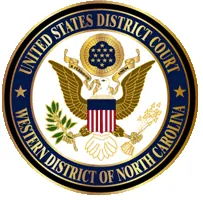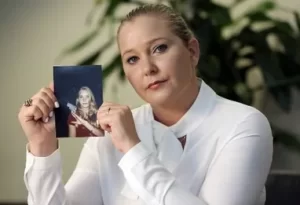Image: Seal of the United States District Court for the Western District of North Carolina; via Wikipedia.
A surprising twist in the Uber passenger sexual assault multidistrict litigation (MDL): two major bellwether cases are being moved from California to the Western District of North Carolina, even as they remain under supervision of Judge Charles Breyer in California. The transfers rely on both 28 U.S.C. § 1404(a) (the federal venue-transfer statute) and Uber’s Terms of Use, which include a forum-selection clause.
The rationale is simple: generating North Carolina docket numbers allows the trials to formally take place there while still preserving Breyer’s oversight.
These transferred cases are part of Wave 1 of bellwether trials, designed to test how juries respond to the core claims at the heart of the Uber MDL: that Uber delayed or refused safety measures, underreported sexual violence incidents, and prioritized growth over passenger protection.
The first MDL bellwether is still scheduled for January 7, 2026, in the Northern District of California.
The Uber MDL consolidates roughly 3,000 federal lawsuits. Uber’s public safety disclosures have long been suspect; newly unsealed court records revealed in a New York Times investigation suggest just how far the gap may run. Between 2017 and 2022, Uber logged more than 400,000 reports of sexual assault or misconduct, an average of one report every eight minutes, while the company had publicly disclosed only about 12,500 serious incidents in three safety reports, covering six cumulative years from 2017-2022.
These revelations give plaintiffs ammunition to argue that Uber’s public safety reports have masked the true scale of risk to riders. If juries in North Carolina respond more favorably to those revelations, the pressure on Uber to resolve or settle could intensify. On the flip side, a defense win in a venue viewed as more favorable to corporate defendants might embolden Uber’s posture across all pending cases.
Why does this matter? Because where a case is tried affects more than logistics. Different districts have different jury pools, legal norms, and courtroom cultures. A successful defense in North Carolina could embolden Uber’s negotiation stance; a verdict favoring survivors could exert even more pressure toward settlement. Either way, this shift broadens the battleground beyond California.
For survivors and attorneys watching the MDL closely, the move signals that Uber is aggressively using forum-selection strategies and venue transfers to shape where the fights will happen. It underscores that outcomes may not hinge solely on the quality of the evidence but also on which jury hears it (and where.) Meanwhile, the California state trial continues in parallel, and its developments may further influence how jurors perceive the MDL cases. The first California state Uber sexual assault trial is currently being litigated.
If you or someone you know was assaulted during an Uber ride, your story matters and your case could help shape the future of hundreds of similar lawsuits. The shifting of bellwether trials into North Carolina demonstrates just how high the stakes are. Venue matters. Jury attitudes matter. This is no longer just a California fight.
On our Uber Sexual Assault Lawsuit Guide, we break down what these developments mean for survivors: how to understand the MDL, how the state and federal cases interact, and what steps you can take to protect your rights. Whether your case is tied to California or elsewhere, this litigation is national in scope, and you deserve access to clear, survivor‑centered guidance.
Every voice counts. Every verdict matters. If you’re unsure whether you qualify or what to do next, that page is a place to start.




